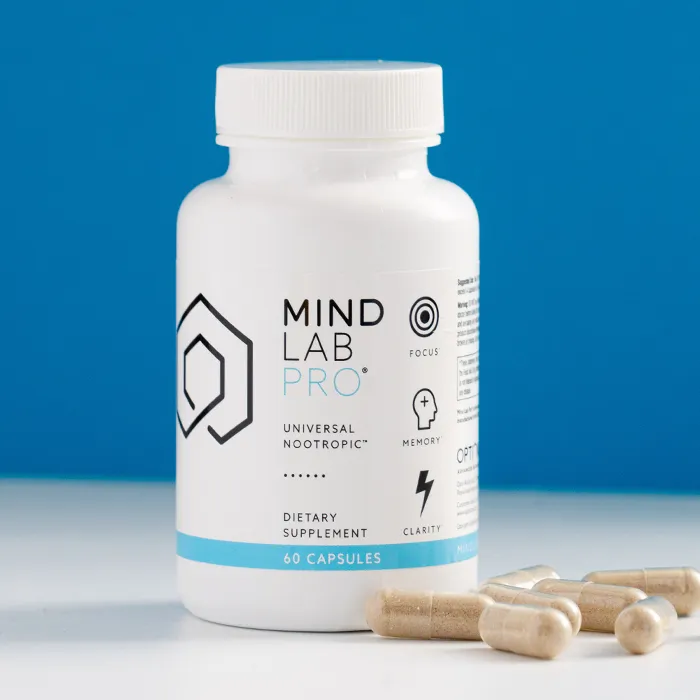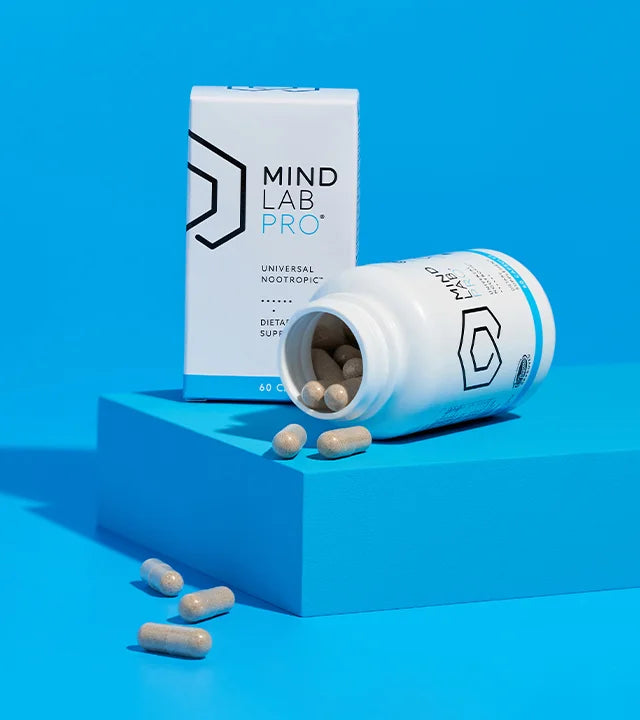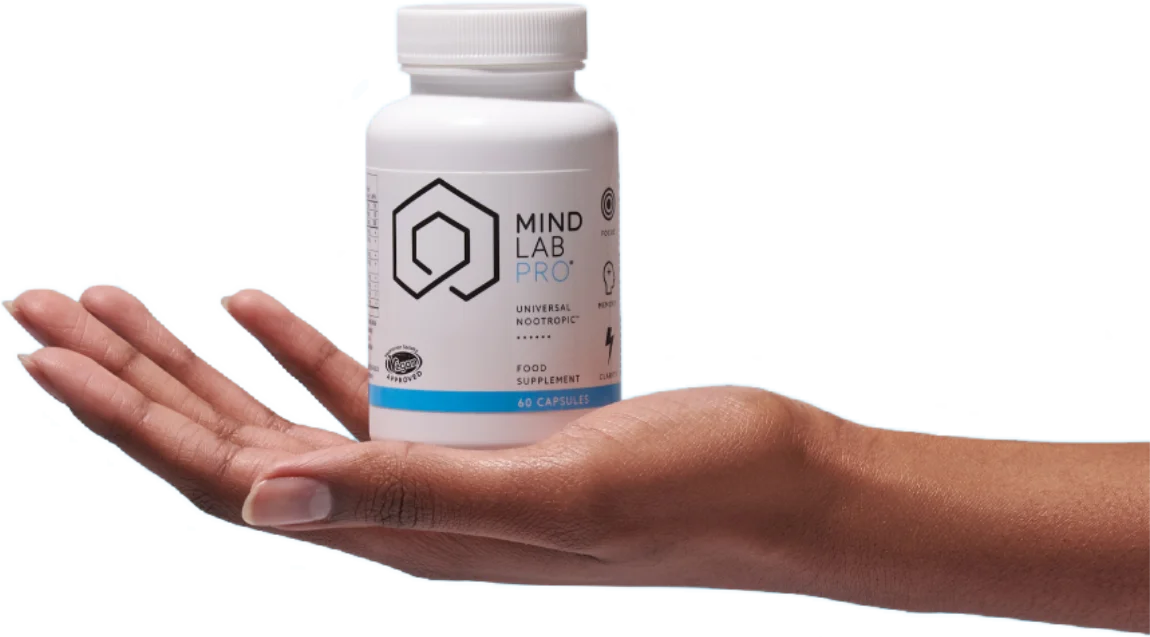Ever had feelings of worry, tension, or fear about things that are about to happen, or something that could happen in the future?
If you’re here, you probably want the practical answer: can phosphatidylserine (PS) help you feel calmer under pressure—and if so, how much should you take, when should you take it, and how long does it take to notice? This guide breaks down what PS is, how it may support the body’s stress response (including cortisol balance), what benefits people most often report for everyday anxiety, and the dosing/timing strategies that tend to work best—plus who should be cautious before adding it to a routine.
If so, you have probably experienced anxiety in some form. Anxiety is a natural human response when we feel threatened, which can be experienced through our thoughts, feelings, and physical sensations.
While anxiety can become a serious mental health problem that affects you long term, day-to-day anxiety is also commonly experienced by all of us, particularly when coping with stressful events or changes.
It’s important to seek advice from your doctor if you feel you are experiencing anxiety over a long period of time.
However, for the day-to-day anxiety relief, such as if you have an exam coming up, or a big client pitch at work, there are many ways which can help you feel more at ease and focused on the task at hand.
This is where nootropics can help! You may find that many individual nootropic ingredients or formulas help ease symptoms of anxiety, as well as improve memory, mental clarity, and mood.
This article focuses specifically on phosphatidylserine for anxiety, and when and how much to take for reap the benefits!
Key Takeaways
- What PS does: A phospholipid that helps keep brain cell membranes flexible and may support a calmer stress response (HPA axis / cortisol balance).
- How it may feel: Clearer thinking under pressure, steadier mood, fewer stress “spikes”—especially with consistent, daily use.
- Timing: Some feel a difference in 1–2 weeks; benefits often consolidate by 3–4 weeks.
- Dosing basics: Common ranges are ~100–300 mg/day, often split; take with food for best tolerance.
- Stack smart: PS pairs well with L-theanine, Rhodiola, and a clean multi-ingredient stack like Mind Lab Pro® for all-day calm focus—without stimulants.

What is Phosphatidylserine?
Phosphatidylserine (PS) is an amino acid derivative compound, similar to dietary fats, found in high amounts in the brain. It can be naturally produced by the body or consumed through the diet, however many of the benefits noted appear to be gained through supplementation.
Phosphatidylserine has many important functions, though the biggest role it plays is providing structure and support for brain cell membranes so that they can properly communicate with each other.
It provides neural protection as we age, which helps to preserve memory, as well as improve focus, mood, and stress-resilience.
Let’s look at the role of phosphatidylserine more specifically for anxiety, depression, and sleep!
Phosphatidylserine for Anxiety and Depression
Phosphatidylserine is best known for its brain-supporting benefits that help improve mental acuity and preserve memory as we get older. Though, it has also been shown to improve depression and blunt the effects of chronic stress and anxiety.1
I deal with anxiety and depression. Mind Lab Pro definitely helps balance all that out, giving me focus and energy.Tyler G.

Phosphatidylserine for Sleep
Tying in with the above, phosphatidylserine has been shown to improve sleep by lowering cortisol levels.2
Have you ever laid awake at night worrying about an upcoming event, for example? This is the effect of cortisol, a hormone that is released in response to stress and is the culprit for keeping us awake at night to worry.
Studies have shown phosphatidylserine to be effective in reducing our cortisol levels when they become elevated from a stressful situation, making it an effective antidote for a good night’s sleep.
So, how much of this supplement do we need to reap the benefits of easing anxiety and improving sleep?
What Else Does Phosphatidylserine Do?
Aside from being effective for memory, anxiety, and reducing cortisol, phosphatidylserine also has other benefits for cognitive health.
As the compound is concentrated in brain cell membranes, this therefore helps maintain fluidity, optimizes receptors, and promotes neurotransmitters like acetylcholine and dopamine.
Additionally, it supports brain cell energy production and may also increase nerve growth factor (NGF) which supports brain cell creation and repair.
As a result of these functions, phosphatidylserine is thought to sharpen memory, slow cognitive decline, promote a more positive mindset, and help with mood, anxiety, and mental clarity.
Phosphatidylserine: When and How Much to Take
Typical effective doses of phosphatidylserine range from 100-300mg daily. It can be taken 2-3 times per day with or without meals, or before bedtime to help promote sleep.3
Ideally, you want to look for a plant-based source such as soy or sunflower lecithin, as this would be the most effective and clean form.
Though, phosphatidylserine is best taken as part of a nootropic stack or formula such as Mind Lab Pro.
Mind Lab Pro combines 11 ingredients that all work together to optimize multiple brain pathways to give you the best nootropic effects.
This formula contains 100mg of phosphatidylserine alongside other ingredients such as citicoline, lion’s mane mushroom, L-tyrosine, and rhodiola rosea, which all bring you the cognitive support you need, when you need it.
The noted benefits of Mind Lab Pro include:
- Improved memory and recall
- Better mental processing speed
- Increased motivation and mental drive
- Increased attention, focus, and concentration
- Stable mood and a more relaxed mindset
Phosphatidylserine Side Effects
You’re probably thinking phosphatidylserine, or Mind Lab Pro, sounds like an effective brain booster—but does such a powerful supplement have side effects and downfalls?
Turns out, phosphatidylserine, even in high doses in elderly populations, have not been associated with any adverse effects. As this is a naturally occurring substance, our body is already familiar with it therefore doesn’t react against it when consumed as a supplement.
Additionally, all the ingredients found in Mind Lab Pro are safe and well tolerated.
However, as with any supplement, it’s important to consult your doctor before taking anything new.
Frequently Asked Questions
What is phosphatidylserine and what does it do?
Phosphatidylserine, often called PS, is a fat-like compound found in high amounts in the brain. It helps support the structure and flexibility of brain cell membranes, which is important for healthy communication between brain cells. It is also linked to memory, focus, mood, stress resilience, and cortisol balance. If you want a broader overview of PS and its cognitive benefits, see Phosphatidylserine (PS).
Does Phosphatidylserine help with anxiety?
Research suggests phosphatidylserine may help support a calmer stress response, especially when anxiety is tied to stress and elevated cortisol. Many people use it to feel steadier under pressure, think more clearly, and reduce stress spikes during demanding days. Individual responses vary, and ongoing or severe anxiety should always be discussed with a doctor.
When is the best time to take phosphatidylserine?
The best time to take phosphatidylserine depends on your goal. Many people take it during the day for stress resilience and mental clarity, while others take it in the evening if stress is interfering with sleep. This page notes that phosphatidylserine can be taken 2 to 3 times per day and that taking it before bed may be helpful for sleep support. The most important factor is consistent daily use.
Should I take phosphatidylserine in the morning or at night?
You can take phosphatidylserine in the morning or at night. Morning use may be helpful if you want support for focus and stress during work, study, or social pressure. Night use may be more helpful if stress and racing thoughts are affecting sleep. Some people do best by splitting their dose across the day, especially within the common 100 to 300 mg daily range.
How much phosphatidylserine should I take per day?
A typical supplemental range is 100 to 300 mg per day. This is often taken as one dose or split into 2 to 3 smaller doses depending on the product and your routine. Start with the label directions and stay consistent for a few weeks before deciding whether the dose is a good fit for you. If you want a pre-formulated option that includes PS in a balanced stack, see Mind Lab Pro.
Should I take phosphatidylserine with food or on an empty stomach?
Phosphatidylserine is often well tolerated either way, but many people prefer taking it with food for better tolerance and an easier routine. Taking it with meals can also make it simpler to stay consistent when using split doses. If you have a sensitive stomach, taking it with food is usually the better starting point.
How long does it take to notice the effects of phosphatidylserine?
Some people notice steadier mood, better focus, or less stress reactivity within 1 to 2 weeks. For many people, fuller benefits become more noticeable after 3 to 4 weeks of consistent use. The exact timeline depends on your stress level, dose, product quality, and whether you are taking phosphatidylserine on its own or in a nootropic stack.
Does phosphatidylserine lower cortisol?
Phosphatidylserine is commonly used for cortisol support because it may help blunt the stress response when cortisol becomes elevated. That is one reason it is often used for stress related anxiety and sleep support. The effect is not usually instant like a sedative, and it tends to be more noticeable with regular daily use over time. For more on stress support and related nootropic strategies, see Rhodiola Rosea and L-Theanine.
Does phosphatidylserine help with sleep or make you sleepy?
Phosphatidylserine is not usually described as a sedating supplement, so it does not typically make you sleepy in the same way a sleep aid does. Instead, it may support better sleep by helping reduce stress related cortisol activity, which can make it easier to wind down at night. If your sleep issues are linked to stress and worry, phosphatidylserine may be more helpful than if your sleep issues come from another cause.
What’s a typical dose?
Common supplemental ranges are about 100 to 300 mg per day. Follow the product label and only adjust as needed based on your response and your healthcare professional’s advice.
Can I combine PS with other nootropics?
Yes, phosphatidylserine is often combined with other nootropics. Common pairings include L-Theanine and Rhodiola for calm focus and stress resilience. Many people also use it in a complete stimulant free stack for broader support across memory, mood, and focus. If you want a pre-stacked option, the full ingredient breakdown is here: Mind Lab Pro Ingredients.
Is it safe to take phosphatidylserine every day?
Phosphatidylserine is generally considered well tolerated and is often used daily, including in long term brain health routines. This page also notes that phosphatidylserine has not been associated with adverse effects in studies, including higher dose use in older adults. Even so, it is still smart to check with your doctor before starting any new supplement, especially if you take medication or have a medical condition. For a broader safety guide, see Nootropic Side Effects.

FINAL THOUGHTS
Phosphatidylserine, a natural fatty substance found in the brain, is proven to be beneficial for easing symptoms of anxiety, as well as improve memory and reduce cortisol levels.
It’s best to take 100-300 mg of phosphatidylserine 2-3 times per day at any time, though taking it before bed may have some additional benefits for sleep.
Look for a plant-based source such as soy or sunflower lecithin, or take it as part of a nootropic stack or formula, such as Mind Lab Pro!
References
- Hellhammer J, Hero T, Franz N, Contreras C, Schubert M. Omega-3 fatty acids administered in phosphatidylserine improved certain aspects of high chronic stress in men. Nutr Res. 2012;32(4):241-50. doi: 10.1016/j.nutres.2012.03.003.
- Monteleone P, Maj M, Beinat L, Natale M, Kemali D. Blunting by chronic phosphatidylserine administration of the stress-induced activation of the hypothalamo-pituitary-adrenal axis in healthy men. Eur J Clin Pharmacol. 1992;42(4):385-8.
- Patel. K. Phosphatidylserine. Examine.com. 2018.

